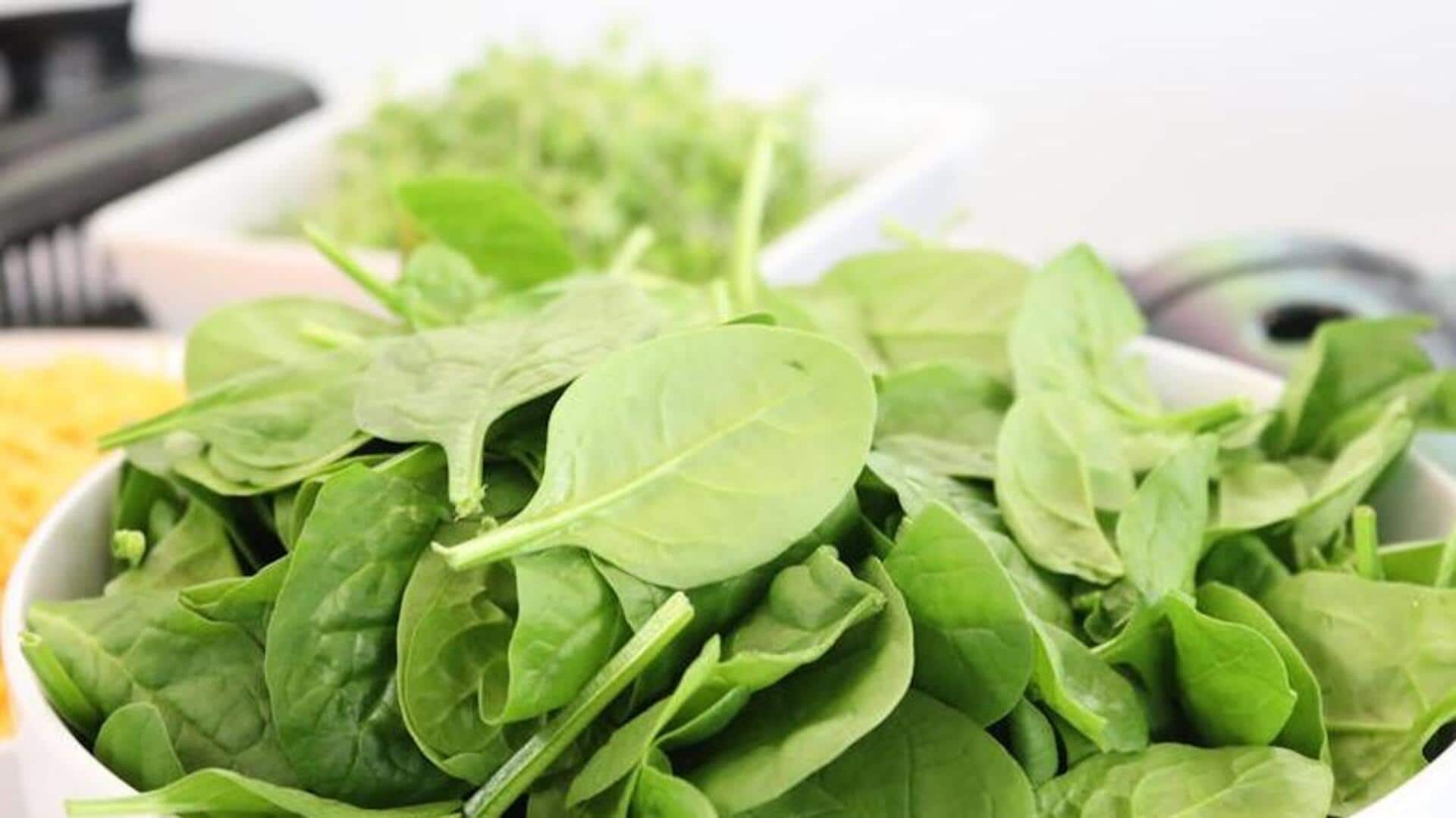
Spinach and iron: Myths busted, facts revealed
What's the story
Spinach has become synonymous with nutrient-rich food, particularly due to its iron content. However, the misconception stems from a decimal error in an early study, and not reality. Although spinach contains iron, it's neither as abundant, nor absorbed as easily as most of us think. Here's the truth behind the popular myth of spinach's iron content.
Historical error
The origin of the myth
The myth stems from a miscalculation in an early study that placed spinach's iron content at ten times its actual value due to a misplaced decimal point. The error was corrected later, but the myth stuck since it was widely circulated before the days of digital correction.
Actual levels
Iron content in spinach
Spinach provides about 2.7 milligrams of iron per 100 grams, a quantity that's similar to many other leafy greens but not overly impressive. This iron comes in the form of non-heme iron, which our bodies absorb less effectively than the heme iron present in certain other foods. As a result, although spinach does add to our iron intake, its contribution is somewhat curtailed by these factors.
Absorption challenges
Factors affecting iron absorption
Spinach has oxalates that can limit the body's absorption of non-heme iron, making it less bioavailable. Pairing spinach with vitamin C-rich foods can slightly improve the absorption rate. But again, this combination doesn't significantly increase spinach's overall contribution to our daily iron intake, further emphasizing the limitation of relying solely on spinach for iron.
Alternative sources
Comparing spinach with other sources
Lentils and beans are the best plant-based sources of non-heme iron, as compared to spinach, providing us with more iron that's easier to absorb. These healthy alternatives not only make up a larger share of our iron intake but also deliver nutrients such as protein and fiber. Including these in a balanced diet boosts dietary iron intake efficiently, making them indispensable for good health.